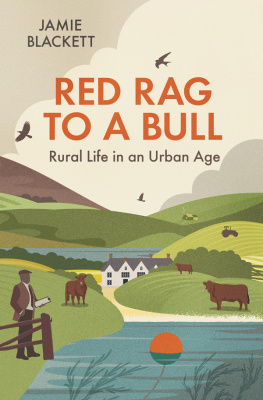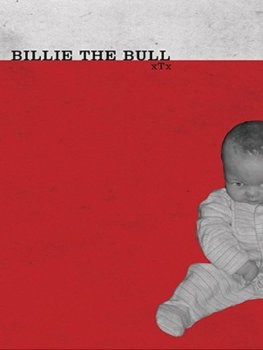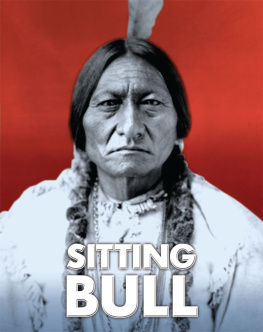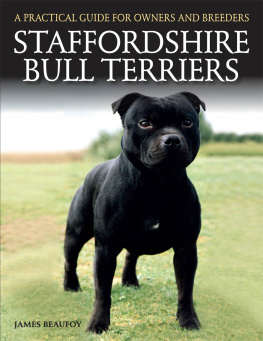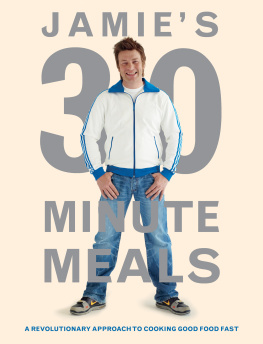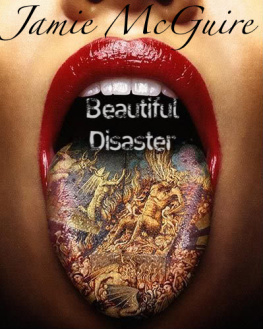Jamie Blackett - Red Rag to a Bull
Here you can read online Jamie Blackett - Red Rag to a Bull full text of the book (entire story) in english for free. Download pdf and epub, get meaning, cover and reviews about this ebook. year: 2022, publisher: Quiller, genre: Detective and thriller. Description of the work, (preface) as well as reviews are available. Best literature library LitArk.com created for fans of good reading and offers a wide selection of genres:
Romance novel
Science fiction
Adventure
Detective
Science
History
Home and family
Prose
Art
Politics
Computer
Non-fiction
Religion
Business
Children
Humor
Choose a favorite category and find really read worthwhile books. Enjoy immersion in the world of imagination, feel the emotions of the characters or learn something new for yourself, make an fascinating discovery.
- Book:Red Rag to a Bull
- Author:
- Publisher:Quiller
- Genre:
- Year:2022
- Rating:5 / 5
- Favourites:Add to favourites
- Your mark:
- 100
- 1
- 2
- 3
- 4
- 5
Red Rag to a Bull: summary, description and annotation
We offer to read an annotation, description, summary or preface (depends on what the author of the book "Red Rag to a Bull" wrote himself). If you haven't found the necessary information about the book — write in the comments, we will try to find it.
Red Rag to a Bull — read online for free the complete book (whole text) full work
Below is the text of the book, divided by pages. System saving the place of the last page read, allows you to conveniently read the book "Red Rag to a Bull" online for free, without having to search again every time where you left off. Put a bookmark, and you can go to the page where you finished reading at any time.
Font size:
Interval:
Bookmark:

RED RAG
TO A BULL
A passionate and informative record of one mans attempt to restore a small Scottish farming and sporting estate, at a time when the political class, the media and the educational establishment are dominated by people who have lost all sense of the countryside as the heart of the British way of life. Blackett is devoted to wildlife, and describes in fascinating detail his battle to maintain ecological equilibrium on his patch of land at a time when almost everything necessary to achieve that end has been denounced or even criminalised at the behest of people who know nothing whatsoever about the matter. His book belongs with the tradition established by H. Rider-Haggard and A.G. Street a frank, honest and beautifully observed account of the return of the native. Blackett shows us how to rediscover the land beneath the layers of priggishness and plastic that have been deposited upon it by urban disdain. And when the peasants next march on London to confront the nonentities in Parliament, they will surely each be carrying a copy of this book in their pockets.
Sir Roger Scruton, FBA, FRSL
What a brilliant, enlightening and amusing book, about the real countryside. Jamie Blackett presents the reader with the realities of rural life, hitting nails on the head left, right and centre and only missing twice.
Those with mud on their boots and the countryside in their hearts will love it. Those with Bambi on the TV and soya in their cupboards will have problems as their prejudices are exposed; but they should/must read it nevertheless enlightenment!
Red Rag to Bull has messages for everybody concerned with rural Britain today. It should be read by politicians, bureaucrats, ramblers, wildlife-lovers, townies, blow-ins and bumpkins like me. What a read!
Robin Page
Jamie Blackett was accused of being a right-wing version of me and he took it as a compliment! Having read Red Rag to a Bull so do I!
George Galloway

In memory of Annabel,
the bravest of the brave
It was the best of times, it was the worst of times, it was the age of wisdom, it was the age of foolishness, it was the epoch of belief, it was the epoch of incredulity, it was the season of Light, it was the season of Darkness, it was the spring of hope, it was the winter of despair, we had everything before us, we had nothing before us, we were all going direct to Heaven, we were all going direct the other way in short, the period was so far like the present period, that some of its noisiest authorities insisted on its being received, for good or for evil, in the superlative degree of comparison only.
Charles Dickens, A Tale of Two Cities
I WOULD like to thank the expert witnesses who appear in the book: David Cameron, David Mundell, Owen Paterson, Matt Ridley and John Mackenzie of Gairloch for being so generous with their time and very patient with my amateurish interviewing technique.
I have been fortunate to be able to ask a number of kind people to read various drafts and give me feedback, and I am very grateful to my aunt Cicely McCulloch, Pedro Landale, Jeremy and Char Culham and Lesley Andrews for their help and encouragement.
The effort would have been wasted if Andrew Johnston of Quiller Publishing had not taken a gamble on a hastily scribbled synopsis and I am immensely grateful to Andrew and Gilly and their team at Quiller for giving the book the attention to detail and quality of production that only a small independent publisher can bring; also particularly the editor, Andrews brother Barry Johnston, whose advice has been invaluable. I am sure I am not alone in feeling grateful that this particular branch of the Johnston family has given up rustling cattle in Annandale and gone into publishing.
Most of all I should thank our wonderful team here, especially David McWilliam, Graham Kennedy, John Rippon, Kate and Hayley Nichol, and Karen McKie for their forbearance and for doing all the hard work while I have been abstracted by the book. And last, but in all ways first, my wife Sheri, who has put up with being married to a soldier, then a farmer and now, worst of all, also a writer.
Thank you.
Jamie Blackett
Arbigland September
2018
EVERY GENERATION moans about change. I have taken consolation in thinking about how my forebears have dealt with the challenges of their times. The first of my family to live here at Arbigland, General William Stewart, who bought this estate in 1852, soon after the repeal of the Corn Laws, showed considerable optimism by investing in land when the pessimists were predicting a collapse in prices. He had a relatively easy time as they stayed up, kept artificially high by the Crimean War and the American Civil War. It was his nephew, my great-uncle Kit, who had to keep going through the agricultural depression that followed tariff reform, with falling commodity prices and rents.
My great-grandfather Willie never had much chance to make a go of things, blown off his horse his hunter, actually by shrapnel at the First Battle of Ypres in 1914. It fell to his widow, Prudence, to hang on through the hard times in the twenties and thirties, so that her son Bill, my grandfather, could keep the flame alive. He probably had it easiest, although he lost five years of his youth away at the war, and he gradually took the land back in hand, as tenancies were given up, and forged a single, modern agricultural business out of eight farms, increased to eleven and several large blocks of forestry in the hills by the time he finished. He built up a renowned dairy herd and took full advantage of the agricultural boom, as farmers dug for Britain and fed the nation in the decades that followed.
His eldest son, Archie, never had a chance to make his mark, drowned punt gunning in 1970 shortly after taking over, though he left behind his paintings, which are wonderful evocations of the Solway and the geese and ducks that he loved. It fell to my father, Beachie, to hang on, the estate shrunk again by death duties, as the Chancellor of the Exchequer, Denis Healey, squeezed the rich until the pips squeaked. My siblings and I led a carefree life that seemed in retrospect to revolve around ponies, building dams on the beach, and daily walks with our nanny, the saintly Mrs Kennon. But off-stage there were regular crisis talks going on in the estate office, as my father tried valiantly to modernise the dairying operation and make it pay.
Farming became reliant on the Common Market and subsequently the European Union. Like many of his generation, he was encouraged to get out of dairying with a golden milkshake from Brussels and was paid to grub up the hedges and become a barley baron. His big crisis came in the nineties, when the Lloyds insurance market went bust after three hundred years of providing a steady income for landowners, and took him with it.
So, every generation has had to adapt to changing circumstances, and one shouldnt complain. But, notwithstanding Dickenss wise words at the beginning of this book, I think us baby-boomers have had to put up with more changes than most, and one can be forgiven for thinking that we live in a time of revolution unlike any other for the last three centuries. My predecessors could at least be sure of which country they were living in, but devolution and the current proposals for Scottish independence could yet take us back to pre-1707.
Font size:
Interval:
Bookmark:
Similar books «Red Rag to a Bull»
Look at similar books to Red Rag to a Bull. We have selected literature similar in name and meaning in the hope of providing readers with more options to find new, interesting, not yet read works.
Discussion, reviews of the book Red Rag to a Bull and just readers' own opinions. Leave your comments, write what you think about the work, its meaning or the main characters. Specify what exactly you liked and what you didn't like, and why you think so.

